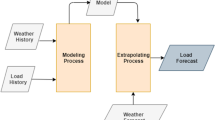Abstract
The stochastic nature of renewable energy sources creates unpredictable variability making instantaneous demand and supply a big challenge. Demand response (DR) which is an intentional modification of consumer loads as per utility requirement can support the intermittent nature of renewable energy sources, helping grid operators to quickly respond to power variability. Smart grids provide an opportunity for consumers to produce energy and feed it into the grid as well as control their energy requirement which is one of the important aspects of DR implementation. This paper provides an overview of various aspects of DR programs available in the literature from point of view of challenges, benefits, and applications. Various opportunities and challenges for DR deployment on renewable energy integration and smart grids from the Indian context are discussed in the work. The objective of the paper is to suggest drivers that will motivate DR deployment with effective renewable energy integration in the country. One of the important aspects of DR implementation in the country is to assess DR potential available among the different categories of consumers. Consumer baseline gives reference consumption which is used to assess DR potential. A case study has been conducted on one of the industrial feeders in Goa state to estimate consumer baseline load (CBL) using different methods. Average, maximum value, adjustment, and regression-based CBL estimation methods used for analysis are compared based on evaluated performance metrics. From the analysis, it is found that the adjustment method is most accurate for CBL estimation.
Access this chapter
Tax calculation will be finalised at checkout
Purchases are for personal use only
Similar content being viewed by others
References
Medina, J.: Demand response and distribution grid operations: opportunities and challenges. IEEE Trans. Smart Grids 1(2), 193–198 (2010)
Albadi, M.: A summary of demand response in electricity markets. Electr. Power Syst. Res. 78(11), 1989–1996 (2008)
Brahman, F.: Optimal electrical and thermal energy management of a residential energy hub, integrating demand response and energy storage system. Energy Build. 90, 65–75 (2015)
Fan, Z.: Smart grid communications: overview of research challenges, solutions, standardization activities. IEEE Commun. Surv. Tutorials 15(1), 21–38 (2013)
Siano, P.: Demand response and smart grids—a survey. Renew. Sustain. Energy Rev. 30, 461–478 (2014)
Sharifi, R.: Customer baseline models for the residential sector in the smart grid environment. Energy Rep. 2, 74–81 (2016)
Wijaya, T.: When bias matters: an economic assessment of demand response baselines for residential customers. IEEE Trans. Smart Grids 5(4), 1755–1763 (2014)
Mohajeryami, S.: The impact of customer baseline calculation methods on peak time rebate program offered to residential customers. Electr. Power Syst. Res. 137, 59–65 (2016)
Li, K., Wang, B., Wang, Z., Wang, F., Mi, Z., Zhen, Z.: A baseline load estimation approach for the residential customer based on load pattern clustering. In: Proceedings International Conference on Applied Energy, ICAE2017, Cardiff, UK (2017)
Dietrich, K.: Demand response in an isolated system with high wind integration. IEEE Trans. Power Syst. 24(1), 20–29 (2012)
Papvasiliou, A.: Large scale integration of deferrable demand and renewable energy sources. IEEE Trans. Power Syst. 28(2), 1385–1394 (2013)
Tobary, S.: Optimal sizing of PV wind battery power system considering DR programs. In: Proceedings of IEEE International Conference on Power Electronics and Drives Systems, Honolulu, USA (2017)
Cao, X., Zhang, J., Vincent Poor, H.: Optimal renewable penetration in energy procurement and demand response. In: Proceedings of IEEE International Conference on Communication, Kanas City, USA (2018)
Zeng, B.: Integrated planning for a transition to low carbon distribution system with renewable energy generation and DR. IEEE Trans. Power Syst. 29(3), 1153–1165 (2014)
Shahidehpour, M.: Stochastic operation security with demand response and renewable energy sources. In: Proceedings of IEEE Power and Energy Society General Meeting, San Diego, USA (2012)
Leithon, J.: Demand response and renewable energy management using continuous time optimization. IEEE Trans. Sustain. Energy 9(2), 991–1000 (2018)
Miao Tan, K.: Integration of electric vehicles in smart grid: a review on a vehicle to grid technologies and optimization techniques. Renew. Sustain. Energy Rev. 53, 720–732 (2016)
Deshmukh, R., Yin, R., Ghatikar, G.: Estimation of potential and value of DR for industrial consumers in Delhi. In: Proceedings of India Smart Grid Week, Bangalore, India (2015)
Coughlin, K.: Statistical analysis of baseline load models for non-residential buildings. Energy Build. 41, 374–381 (2009)
Author information
Authors and Affiliations
Corresponding author
Editor information
Editors and Affiliations
Rights and permissions
Copyright information
© 2021 Springer Nature Singapore Pte Ltd.
About this paper
Cite this paper
Priolkar, J., Sreeraj, E.S. (2021). Impact of Demand Response Implementation in India with Focus on Analysis of Consumer Baseline Load. In: Bose, M., Modi, A. (eds) Proceedings of the 7th International Conference on Advances in Energy Research. Springer Proceedings in Energy. Springer, Singapore. https://doi.org/10.1007/978-981-15-5955-6_11
Download citation
DOI: https://doi.org/10.1007/978-981-15-5955-6_11
Published:
Publisher Name: Springer, Singapore
Print ISBN: 978-981-15-5954-9
Online ISBN: 978-981-15-5955-6
eBook Packages: EnergyEnergy (R0)




